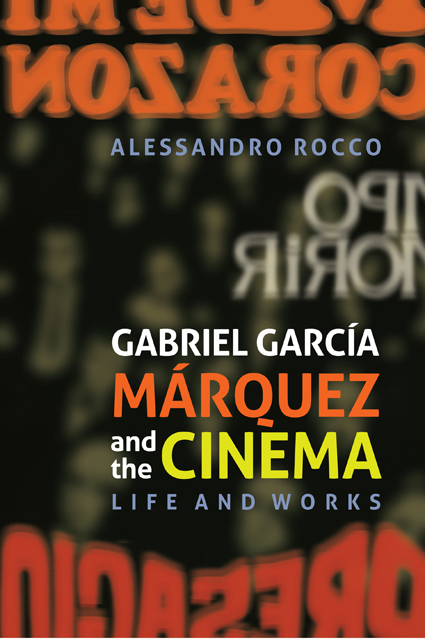Book contents
- Frontmatter
- Dedication
- Contents
- List of Illustrations
- Acknowledgements
- Preface
- 1 The Cinema in the Life of García Márquez
- 2 Tiempo de morir
- 3 Films from the 1970s: The Ghosts of Realism
- 4 Screenplay and Revolution: ¡Viva Sandino!
- 5 Magic Realism in the Cinema
- 6 Six Episodes for Cinema and Television: Amores difíciles
- 7 Con el amor no se juega
- 8 The Fantastic on Television: Me alquilo para soñar
- 9 History and Tragedy: Edipo Alcalde
- Afterword: Works by García Márquez Adapted for the Cinema
- Bibliography
- Index
1 - The Cinema in the Life of García Márquez
Published online by Cambridge University Press: 24 February 2023
- Frontmatter
- Dedication
- Contents
- List of Illustrations
- Acknowledgements
- Preface
- 1 The Cinema in the Life of García Márquez
- 2 Tiempo de morir
- 3 Films from the 1970s: The Ghosts of Realism
- 4 Screenplay and Revolution: ¡Viva Sandino!
- 5 Magic Realism in the Cinema
- 6 Six Episodes for Cinema and Television: Amores difíciles
- 7 Con el amor no se juega
- 8 The Fantastic on Television: Me alquilo para soñar
- 9 History and Tragedy: Edipo Alcalde
- Afterword: Works by García Márquez Adapted for the Cinema
- Bibliography
- Index
Summary
The Early Years: La langosta azul and Neorealism
As all readers of Gabriel García Márquez know, the cinema plays an integral part in virtually all his novels and short stories, making its mark on the reality he represents. The most celebrated example is probably the passage in Cien años de soledad in which the inhabitants of Macondo are up in arms. They decide not to go to the cinema any more to see the films that arrive in the village, because they refuse to accept that ‘the character who had died and was buried in one film and for whose misfortune tears of affliction had been shed would reappear alive and transformed into an Arab in the next one’. One could cite any number of examples, for the simple reason that the cinema was a fundamental experience for García Márquez from childhood. As the author relates in his autobiography, his grandfather Colonel Nicolás Márquez was responsible for revealing to him not only the temperature of ice – as in the famous opening of Cien años de soledad – but also, and above all, the new wonder of the century, the cinema. In fact, ‘each time he thought the film appropriate’, the Italian owner of the cinema in Aracataca, Don Antonio Daconte, ‘would invite us to the early show at the Olympia’, to the shocked disapproval of Gabriel’s grandmother.
As Gerald Martin, the authorised biographer of García Márquez, points out, in considering his relationship with the cinema it is important to bear in mind that ‘he was, of course, a member of the first generation in history for whom the cinema, including talking films, was an experience prior to written literature’. Films were García Márquez’s first experience of narrative, preceding both reading and writing, all the more so because, after each film, his grandfather would get him to retell in his own words the story they had just seen together.
But if this childhood experience laid the foundations for García Márquez’s knowledge and love of the cinema, there was another experience that was no less crucial during his youth. García Márquez would usually name the film-maker and writer Alvaro Cepeda Samudio as his first, decisive tutor about the world of the cinema and its importance as an artistic and cultural phenomenon:
For me cinema was merely a source of enjoyment.
- Type
- Chapter
- Information
- Gabriel García Márquez and the CinemaLife and Works, pp. 1 - 46Publisher: Boydell & BrewerPrint publication year: 2014

